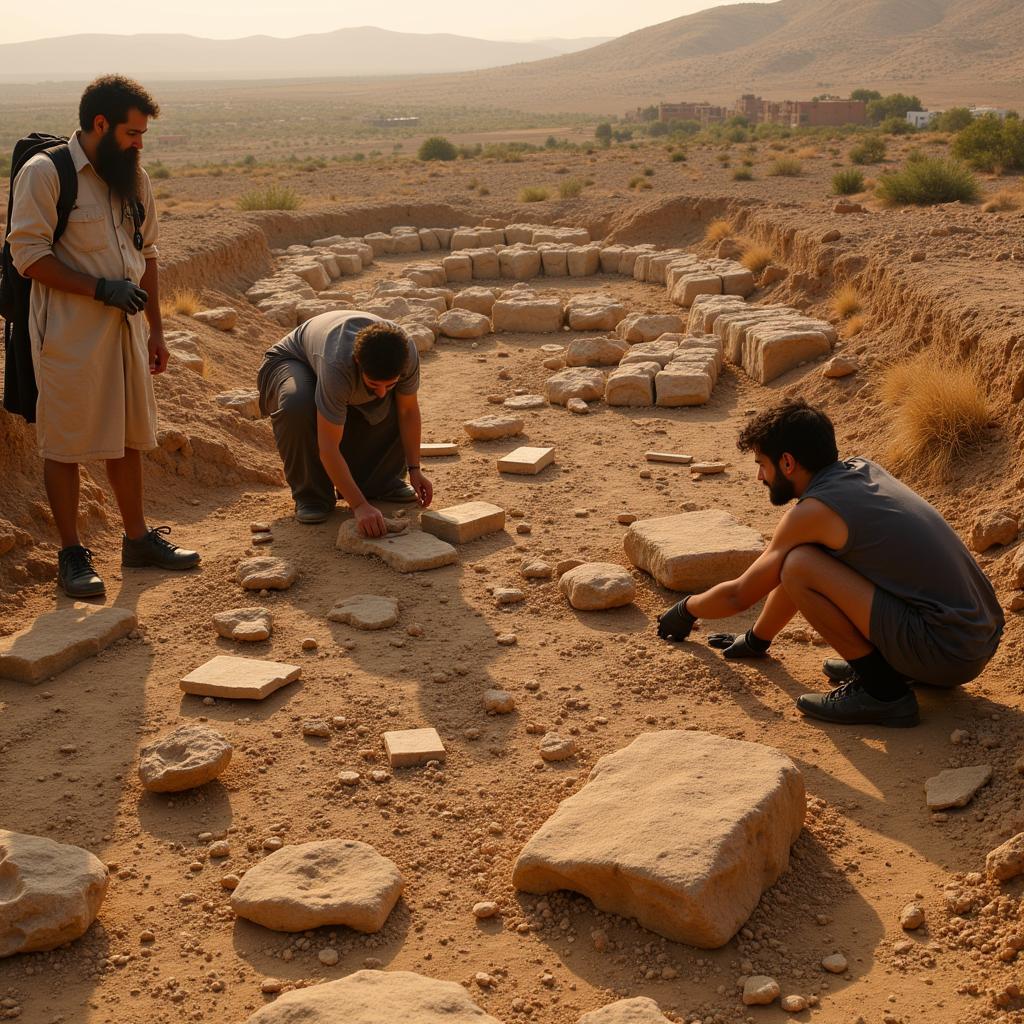Nazarene Research delves into the historical, cultural, and religious aspects of the Nazarenes, a Jewish sect from the 1st century AD. This exploration seeks to understand their beliefs, practices, and ultimately, their connection to Jesus of Nazareth.
Who Were the Nazarenes?
Often shrouded in mystery, the Nazarenes were a Jewish sect whose existence coincided with the early days of Christianity. While their exact origins remain debated, historical accounts and scriptural references provide glimpses into their lives and beliefs. These early Jewish followers of Jesus adhered to Jewish law but also embraced Jesus as the Messiah, leading to a unique and often misunderstood religious identity.
Nazarenes and Early Christianity: A Complex Relationship
The relationship between the Nazarenes and the burgeoning Christian movement is complex and multi-layered. Early Christians, many of whom were Jewish converts themselves, shared common ground with the Nazarenes in their reverence for Jesus. However, as Christianity spread beyond its Jewish roots, theological and practical differences emerged, leading to diverging paths.
 Nazarenes and Early Christians
Nazarenes and Early Christians
The Nazarene Code: Fact or Fiction?
One of the most intriguing aspects of Nazarene research is the enigmatic “Nazarene Code,” a purported collection of teachings and practices attributed to Jesus and his followers. While its existence remains a subject of debate among scholars, the concept of a secret code has captivated imaginations for centuries. Some researchers believe this code holds clues to understanding the true message of Jesus, one possibly hidden within the canonical gospels.
Unraveling the Mysteries: Key Areas of Nazarene Research
Nazarene research encompasses diverse fields of study, each seeking to shed light on this enigmatic group and its connection to early Christianity.
-
Historical Analysis: Scholars meticulously examine historical records, including the writings of Josephus and the Talmud, to piece together a clearer picture of the Nazarenes’ social and historical context.
-
Scriptural Interpretation: Researchers analyze biblical texts, particularly the Gospels and the Acts of the Apostles, to discern information about Nazarene beliefs and practices.
-
Archaeological Exploration: Archaeological discoveries in the Holy Land, including ancient synagogues and artifacts, contribute valuable insights into the lives and customs of Jewish communities during the time of Jesus, potentially offering clues about the Nazarenes.
 Archaeological Excavation Related to Nazarene Research
Archaeological Excavation Related to Nazarene Research
Nazarene Research: An Ongoing Quest for Understanding
The pursuit of understanding the Nazarenes is an ongoing journey of discovery. As scholars continue to investigate, analyze, and interpret historical evidence, new insights emerge, prompting further questions and pushing the boundaries of our knowledge. The study of the Nazarenes not only deepens our understanding of early Christianity but also illuminates the rich tapestry of Jewish history and religious diversity in the 1st century AD.
Frequently Asked Questions About Nazarene Research
-
What is the primary focus of Nazarene research?
Nazarene research aims to uncover the historical and religious significance of the Nazarenes, their connection to Jesus, and their impact on the development of Christianity. -
Why is Nazarene research considered important?
Understanding the Nazarenes provides valuable context for understanding the life and teachings of Jesus, as well as the cultural and religious climate of 1st century Judea. -
What are some of the challenges faced by Nazarene researchers?
Limited historical sources, conflicting interpretations of existing evidence, and the passage of time pose significant challenges to Nazarene research.
Need Help With Your Own Research?
Contact us today! Our team of experienced researchers at Paranormal Research is ready to assist you. Call us at 0904826292, email us at research@gmail.com, or visit us at No. 31, Alley 142/7, P. Phú Viên, Bồ Đề, Long Biên, Hà Nội, Việt Nam. We’re here to help 24/7.